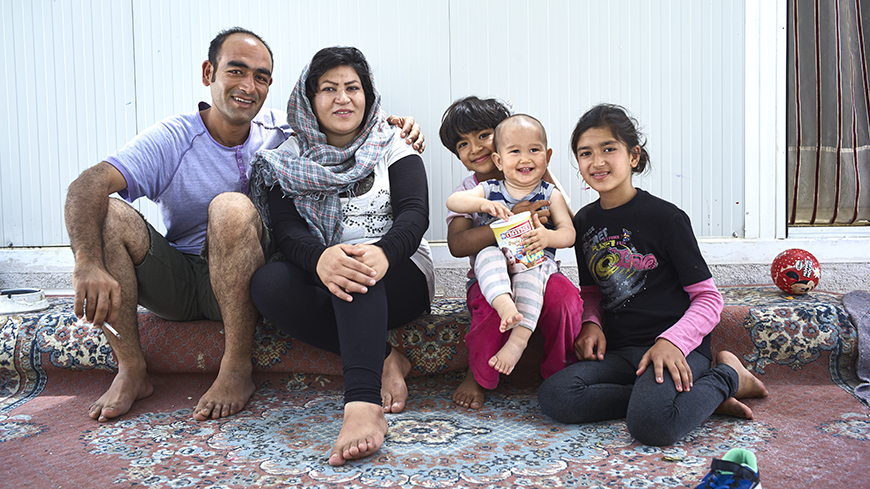Social rights of children, families and migrants are in danger in Europe, according to the latest annual conclusions from the European Committee of Social Rights (ECSR). The Committee today published 896 conclusions (289 cases of non-conformity, 453 cases of conformity and 154 “deferrals”: cases not assessed due to lack of information), in respect of 37 European countries*. In the framework of the reporting procedure the ECSR assessed compliance with the European Social Charter in respect of the following Charter provisions relating to children, families and migrants, as follows:
- the right of children and young persons to protection (Article 7);
- the right of employed women to protection of maternity (Article 8);
- the right of the family to social, legal and economic protection (Article 16);
- the right of children and young persons to social, legal and economic protection (Article 17);
- the right of migrant workers and their families to protection and assistance (Article 19);
- the right of workers with family responsibilities to equal opportunity and treatment (Article 27)
- the right to housing (Article 31).
The main findings concern child labour, including illegally working children in the formal and informal economy, as well as the protection of children from all forms of violence, abuse and exploitation.
The Committee is increasingly concerned about the treatment of children in an irregular migration situation, whether they be accompanied or not, and asylum seeking children, in particular their access to appropriate and safe accommodation.
Moreover, the Committee highlighted the issue of child poverty and social exclusion, emphasizing the obligation of States Parties to take all appropriate and necessary measures to combat and eradicate these phenomena.
Furthermore, the Committee underlined the importance of eliminating gender discrimination and protecting the rights of employed women during maternity, in night work and in dangerous and unhealthy working conditions.
Inadequate measures to combat domestic violence has also given rise to a significant number of findings of non-conformity with the Charter.
With regard to the right to housing, the Committee is particularly concerned about the substandard housing conditions of Roma and Travellers in many countries, the lack of supervision of housing standards and the lack of rules imposing obligations on landlords to ensure that dwellings are of an adequate standard. The Committee emphasised that there are insufficient measures in some countries to reduce and prevent homelessness in general and a lack of affordable housing.
The Committee highlighted the issue of the increasing number of stateless children in Europe with reduced access to basic rights and services such as healthcare and education. The Committee asked states parties to provide additional information on measures to reduce statelessness in the next reporting cycle.
Nevertheless, the conclusions also show certain positive developments concerning social rights in many countries which can be consulted in the country conclusions or in the press briefing document.
“The COVID-19 crisis is a brutal reminder of the importance of ensuring lasting progress with respect to social rights enjoyment, particularly through the development of universal public health services. In our Conclusions 2019, the Committee has examined state efforts to give effect to the fundamental rights of children, families and migrants, as well as to the right to adequate housing. The Conclusions show some progress has been made. However, key shortcomings remain in terms of European states’ implementation of their social rights obligations. It is crucial that the European Social Charter, also known as the Social Constitution of Europe, should be used to shape and analyse decisions during the COVID-19 crisis. The Charter serves as a key tool for states in ensuring that their responses to the Covid-19 pandemic is human rights-compliant – both in the short and the longer term”, stressed Giuseppe Palmisano, President of the European Committee of Social Rights.
Seven States bound by the Collective Complaints procedure were exempted from reporting on the rights of children, families and migrants and instead provided information on the follow-up given to decisions on the merits of collective complaints in which the Committee found a violation. The Committee’s findings in this respect were published in March 2020.
Find more on the European Conclusions of Social Rights conclusions:
- Press briefing document
- General Introduction - Conclusions 2019
- General Introduction - Conclusions XXI-4 (2019)
- Conclusions per country: Albania, Andorra, Armenia, Austria, Azerbaijan, Belgium, Bosnia and Herzegovina, Bulgaria, Denmark, Estonia, Finland, France, Georgia, Germany, Greece, Hungary, Iceland, Ireland, Italy, Latvia, Lithuania, Luxembourg, Malta, the Republic of Moldova, Montenegro, the Netherlands Curaçao, North Macedonia, Poland, Portugal, Romania, the Russian Federation, Serbia, the Slovak Republic, Spain, Turkey, Ukraine and the United Kingdom
Giuseppe Palmisano, President of the ECSR, presents the highlights conclusions 2019
Aoife Nolan, member of the ECSR, explains the main issues dentified by the Committee relating to children's rights
Giuseppe Palmisano, President of the ECSR, reminds how important is universal public health care in times of pandemic
- Reporting procedure
- Collective complaints procedure




